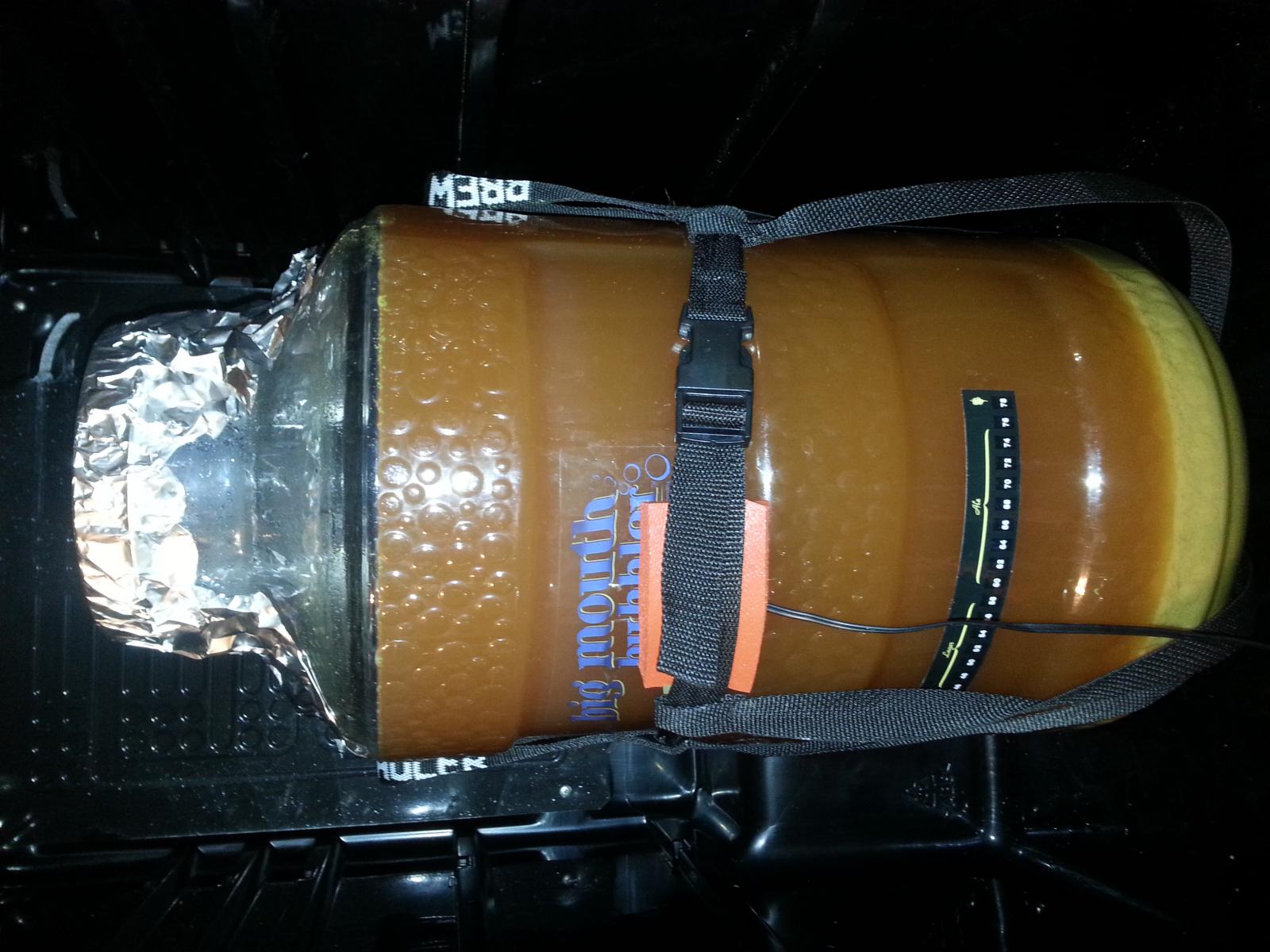Brewenstein
Well-Known Member
So even though it had only been 8 days from brewing this, I couldn't stand it any longer and had to check on it.
So here were my notes:
The OG was 1.043 and the SG now is 1.014. A little higher than I expected, but I did mash at 155-156 degrees. That puts it around 3.7% ABV.
Color - a nice pale straw color, but hazy - like a hefe. Also there is still hop debris floating around in it.
Aroma - can definitely tell that I used centennial hops. Smelled good, nothing sour (not that I thought it would).
Mouthfeel - maybe a little thin, but not off-putting in any way, especially for a low ABV beer.
Taste - light (not in a bad way), definitely get the hops coming through. I used 5 minutes for the boil additions as a way to guestimate the IBUs (based on a previous post), but that is definitely not correct. For the 8 ounces that I used, it would come out to about 55 IBUs, but it was nowhere near that. I would say closer to 30 IBUs. Or to put it another way, the bitterness seemed well balanced against the malt sweetness and right on the money. The beer was neither too sweet or too hoppy. I will say that the hop flavor seemed more "raw" than "cooked", or what hops taste like after being boiled. Not to say that they were bad tasting, just different. I also think that this flavor was heightened due to the amount in suspension. Otherwise I think this will turn out to be a good sessionable drinker.
The flavor seems stable to me, no "green" taste like most of my beers this early in, so I am going to keg it and put it on CO2 and let the cold help drop out the hop particles. I will report back in a week or so and let you know how it is going. So far I would say it has been a success. Not sure yet if I would keep a no boil beer in the rotation, but I will see after it has some time to settle and carb.
Pic to follow.
Last night I just had to try this - couldn't wait the full 2 weeks for carbonation. It's been in my keezer for 5 days on 12 lbs CO2. It poured with a nice, white, tight head and appeared to be carbed well - plenty of bubbles rising up. No more hop debris floating around, just a nice pale straw color. It was hazy, like a hefe, but pleasing to look at (at least to me). Mouthfeel is good - the carbonation seemed to help with that. Very smooth and pleasing - sort of "pillow-y" like the talk in the thread about that mouthfeel. Perhaps it is the proteins that don't coagulate because there is no boil (pure speculation on my part). Malt taste is very good - I don't detect any difference from a boiled beer. Hops still taste different, but good. Again, like the difference between raw vs cooked vegetables. Sort of "juicy" too. The bitterness was spot on and balanced the malt well. Looks like I got lucky going with 8 oz. of hops. And there is no doubt that they are centennial hops.
Overall, it did not seem like a 3.7% ABV beer. Tasted / felt like a 5-6% beer. The head lasted all the way down the glass and left plenty of lacing. I had one with dinner tonight and again was pleased with it.
I'm still not sure if I will keep something like this in a regular rotation, but it definitely has potential for creating a low AVB beer with a pleasing taste and plenty of "drinkability". I will update from time to time as I work my way through the keg and report back on the stability and if the flavor profile changes with time.





























![Craft A Brew - Safale S-04 Dry Yeast - Fermentis - English Ale Dry Yeast - For English and American Ales and Hard Apple Ciders - Ingredients for Home Brewing - Beer Making Supplies - [1 Pack]](https://m.media-amazon.com/images/I/41fVGNh6JfL._SL500_.jpg)






























 I didn't think there was anything that bad about the bickering that got that thread locked, but whatever.
I didn't think there was anything that bad about the bickering that got that thread locked, but whatever. 